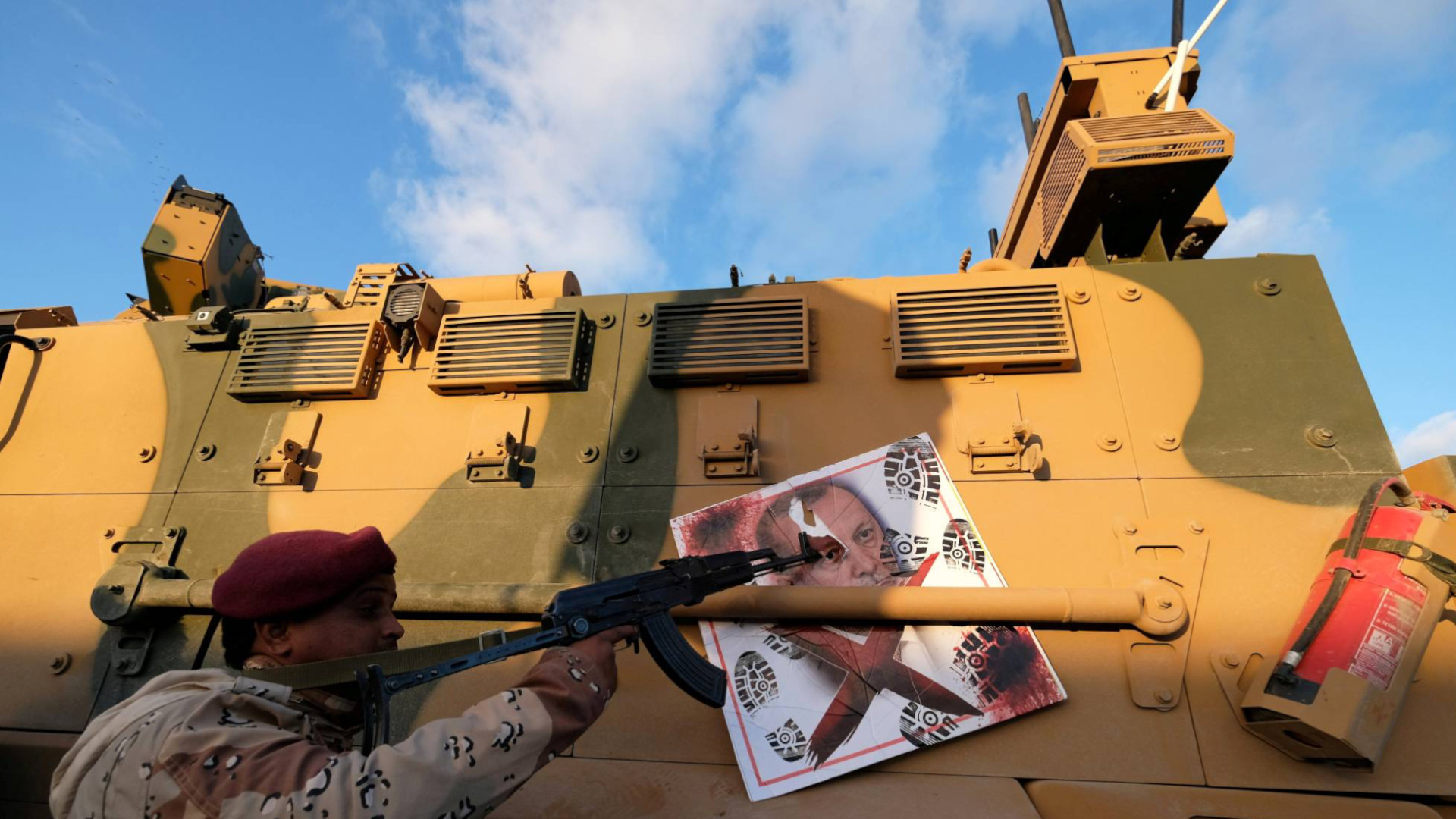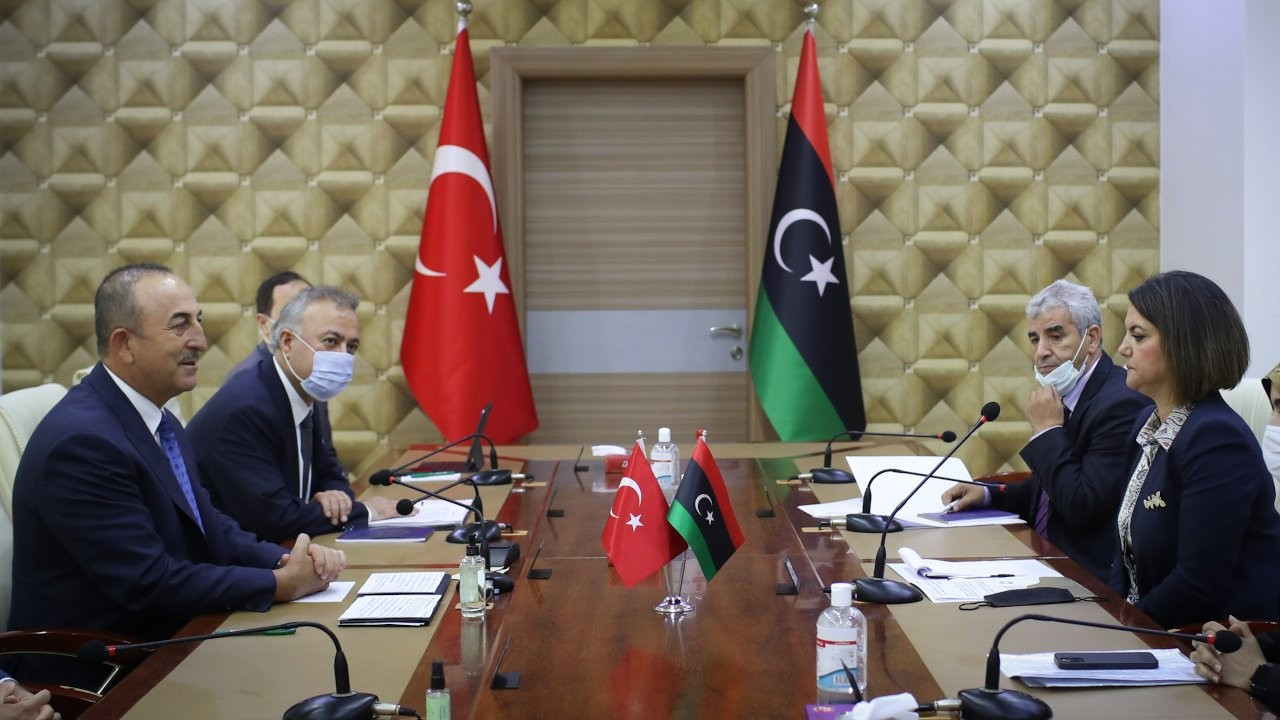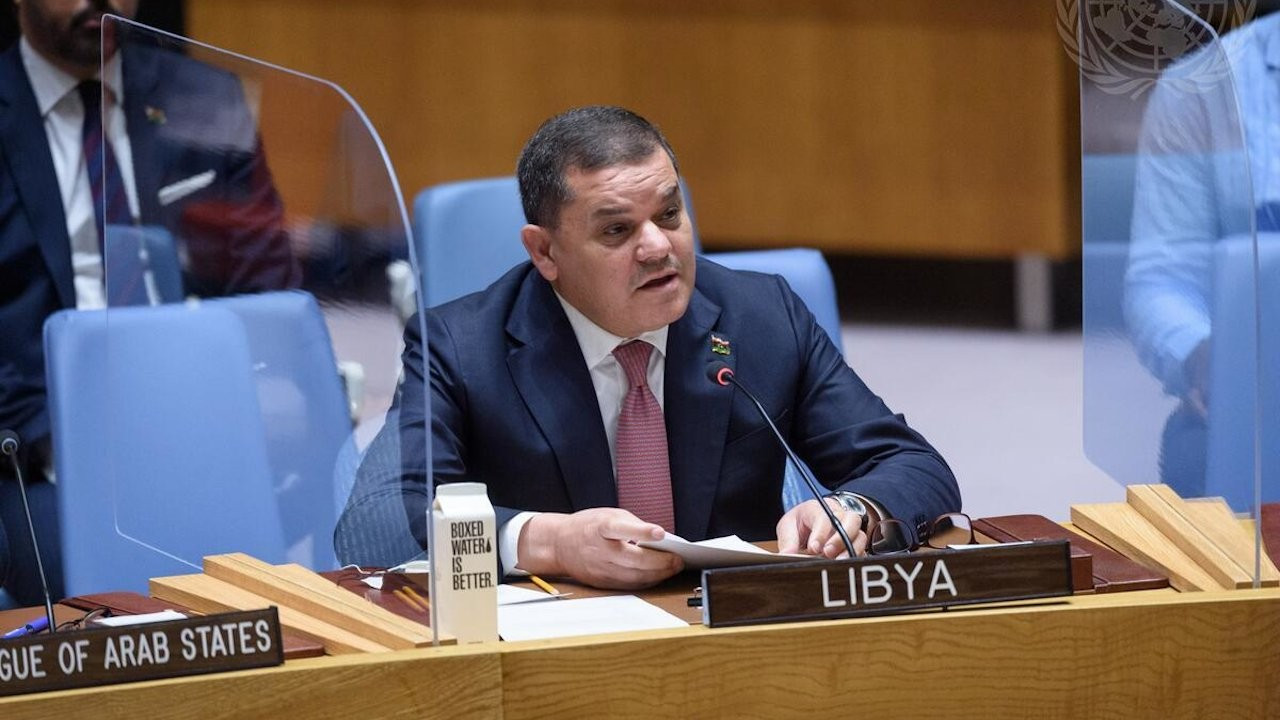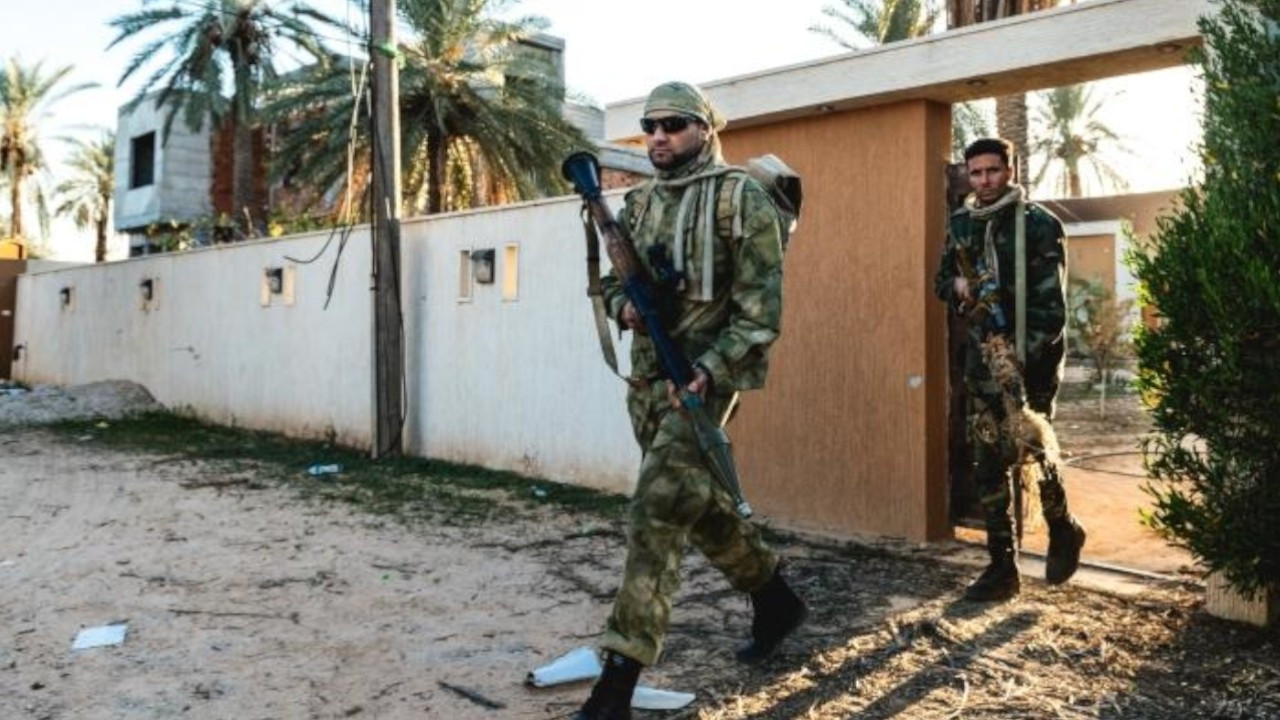Haftar’s rise in Libya puts Turkey in an uneasy position
As General Khalifa Haftar steps down from his military post in Libya to run for president with widespread international and domestic support, Turkey’s support for the National Unity Government led by Prime Minister Abdulhamid Dibeybe may put Ankara in an uneasy position.
Duvar English
Since the civil war broke out in Libya in 2014, Turkey has maintained staunch support of the Libyan government against the advances of General Khalifa Haftar, rebel military leader of the “Libyan National Army.”
When a ceasefire was signed in October 2020, Ankara threw its support behind Prime Minister Abdulhamid Dibeybe and the transitional Government of National Unity. However, the transitional peace now looks like it may not hold - with elections looming on Dec. 24, the government led by General Haftar in Libya’s east has withdrawn its vote of confidence in the transitional Government of National Unity, and Haftar himself has stepped down from his post so that he might run for president. Given the staunch support Haftar has from critical international actors such as Saudi Arabia and Russia, it seems that Turkey may soon lose its position of influence in Libya.
Libya has experienced widespread unrest since its first civil war and the fall of its longtime dictator, Muammar Gaddafi, in 2011. In 2014, civil war again broke out after the General National Congress, which came to power after Gaddafi’s fall, failed to disband after its mandate expired. That year, General Haftar declared the formation of the “Libyan National Army” in the city of Tobruk, near the Egyptian border. He immediately declared war on the government in the capital city of Tripoli.
The UN-backed Government of National Unity (GNU) arrived in Tripoli in 2016, but was not accepted by Haftar and his forces in Tobruk. They continued their attempted takeover of the country, supported by Saudi Arabia, Russia, the U.A.E. and Egypt. Turkey, however, stayed staunchly on the side of the GNU - in 2019, President Recep Tayyip Erdoğan signed a military and security agreement with Tripoli and sent direct military support to fight Haftar’s forces on the ground. In 2020, following the military agreement, Turkey and Libya held talks to allow Turkey to drill for oil in the country.
Even since the peace deal and the establishment of rule by GNU in March 2021, Haftar has maintained his hold on power in Libya’s east. Now, he seems confident that he could win the Dec. 24 election - even though a bill introduced by his ally in parliament that would allow him to return to his military post if he lost the election was struck down, he still chose to relinquish his position so that he might run for the presidency as a civilian. If Haftar were to win the election, Turkey and Qatar, which both supported the GNU, would be put at an enormous economic and strategic disadvantage in the region.
Upon announcement of Haftar’s resignation and the withdrawal of the vote of confidence by Tobruk, the Turkish Foreign Ministry urged calm and the maintenance of the GNU government in the lead-up to the elections.
“It is critical that the National Unity Government continues to function with full authority until the elections so that the elections may be held as planned,” the Turkish Foreign Ministry stated. “It is clear that the withdrawal of a vote of confidence given to the National Unity Government will be a detriment to the stability and transition process of Libya.”
Libya will be at the top of the diplomatic agenda in the coming months. In their meeting on Sept. 29 in Sochi, Russia, Erdoğan and Russian President Vladimir Putin are expected to discuss the situation in Libya.
Further, French President Emmanuel Macron announced at the UN General Assembly this week that France would hold talks on Nov. 12 in the hopes of finding a multilateral solution to the conflict.

 Libya’s journey to hope and corruptionWorld
Libya’s journey to hope and corruptionWorld Libya asks Turkey to help evacuate foreign troopsDiplomacy
Libya asks Turkey to help evacuate foreign troopsDiplomacy Libya PM unaware of Russia, Turkey deal on foreign fightersDiplomacy
Libya PM unaware of Russia, Turkey deal on foreign fightersDiplomacy Libya's east-based forces release Turkish shipDiplomacy
Libya's east-based forces release Turkish shipDiplomacy